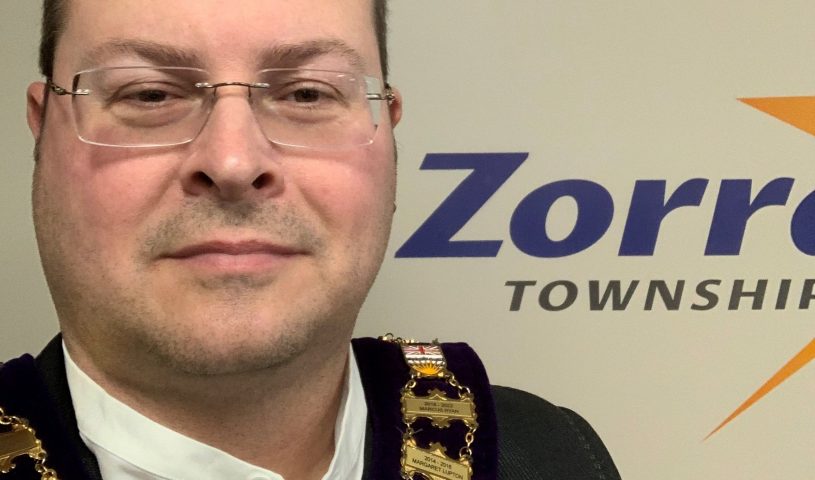A rural perspective on Ontario’s regional government review

Regardless of where you are reading this, I’m sure you have all heard of Ontario’s Regional Government Review. The Ministry of Municipal Affairs and Housing is “reviewing the governance, decision making, and service delivery functions of eight regional municipalities and Simcoe County.” The nine jurisdictions being reviewed are Durham Region, Halton Region, Muskoka District, Niagara Region, Oxford County, Peel Region, Waterloo Region, York Region, Simcoe County, and all their constituent lower tiers (73).
Two special advisors (Ken Seiling and Michael Fenn) are reviewing the regional governments “to help ensure that these municipalities are working effectively and efficiently, and can continue to provide the vital services that communities depend on.” The review will include consultations with municipal councillors and leaders, stakeholder organizations and the public in the spring of 2019.” The mandate of the advisory body is “to provide expert advice to the Minister of Municipal Affairs and Housing and to make recommendations to the government on opportunities to improve regional governance and service delivery.”
This review has been the talk of municipal politics in Ontario since it was formally announced on January 15; and has, of course, been of special concern to the regions in the review. Many politicians and bureaucrats within the regions have read into the review their worst fears: forced amalgamations, or the outright elimination of lower or upper tiers (depending on your perspective).
As a head of council of one of the lower tier municipalities in Oxford County, I have been following the review and all the politics around it, and within it, very closely. Many of you have probably not heard of Zorra Township, a small, rural municipality in Oxford County. Our brand is “doing our part” and we take it seriously. We are small, but we are used to being heard. We have successfully lobbied the Ministry of Education to change the rules around school closures and to achieve the current province-wide moratorium on school closures. We have successfully lobbied the Ministry of Transportation to have alternatives added to the environmental assessment of the high-speed rail proposal. We expect to be heard on this issue as well.
As I said, I’ve followed the review closely. I’ve read (and re-read) the email from the minister announcing the review. I have studied the webpage for the review. I have discussed the review with every administrator and politician I can to gain as much knowledge as possible. I have not been able to determine the process we are in. When I had my interview with the advisors, not even they were able to clearly state what the next steps would be. Will the ministry be considering the input and then asking municipalities how to achieve certain goals? Will it be a collaborative process to find areas of improvement? Or will the provincial government simply tell us what’s best for us? I don’t know. What I do know is what Zorra’s council thinks – the township welcomes this review and looks forward to more opportunities to participate in it in a meaningful way. Zorra believes the most effective implementation of any potential changes identified in the review would be if they were identified by prescribed outcomes, and implemented by the municipalities themselves with approval of the province.
In short – we should decide. Many of the regions in the review (certainly Oxford) have – through their lower tier municipalities – efficient, effective, highly integrated versions of community government already in place. In Zorra our small size and closeness to our residents and their issues and opportunities allows us to be highly responsive and flexible. In rural communities many of our recreational and cultural experiences are provided by dedicated community volunteers using municipal halls. The nature of this transaction is relational: it is a personal relationship between council, staff, and volunteers that fosters the spirit of cooperation essential to volunteerism. This type of relationship is much more difficult to achieve in larger municipalities, and would be irreparably, though not immediately, damaged by the elimination of a lower-tier. In the short term, the agreements would simply be transferred from one level/branch of government to another, but the close relationship that fostered the agreement could never be transferred to a more distant government and the activity would eventually wither.
Local planning decisions are a huge opportunity for communities to advance their strategic and economic goals. Zorra and Oxford have highly non-comparable land use, population density, growth rates, and service expectations relative to many of the other regional governments in the review. The ability to have a small, flexible, responsive local council to quickly consider planning and development applications can only be considered an advantage. Moving to a larger or single tier would necessarily make for a less responsive, less flexible, and slower process.
In terms of geography, density, land use, growth rates, economy, etc. the municipalities in the review are a varied group. As such, the challenges and opportunities facing each community will require different solutions. Each of the municipalities in the review may have a different desired outcome, some of those may even be in opposition to each other. At this point in the process what is most important is that the ministry appreciates that while we are all regional governments, the characteristics of each of our regions are different and those differences require different solutions.
The last thing we need is big government from Toronto coming to rural Ontario and telling us our small government is no good. We do not need a “one size fits all” or “cookie cutter” approach. The politicians best suited, indeed most qualified, to decide what solutions are best for our municipalities are those elected by our communities expressly to represent their interests in these municipal matters.
Simply put – we should decide.
#weshoulddecide
#regionalgovernmentreview
Marcus Ryan is the Mayor of Zorra Township, a leader passionate about his community and its future. He is the Vice Chair of the Community Schools Alliance and a member of the Steering Committee of Intercity Rail.
Related resource materials:



